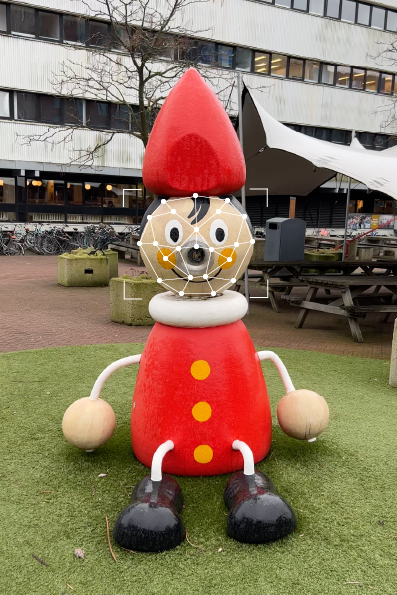From deepfakes to scientific papers, comments and fake news: creating and distributing AI-generated content about, for example, the American elections is child's play. But on which scale we are exposed to and influenced by online disinformation is very difficult to say, according to computer scientist Felienne Hermans. ‘“I am concerned about how little the general public knows about AI and algorithms.”
1. How easy is it to create AI-generated content?
‘“Very easy. For example, you record a video of yourself, in which you say: we are immediately cancelling all support for Ukraine. Then you replace your own face with that of Rutte, or Trump. Child's play. Anyone can put something like that together in an afternoon. And if you also understand how algorithms work, you can then very easily distribute it and ensure that it goes viral.”
2. Can you, as a layman, recognize that content is fake?
‘“With tricks that everyone knows by now, such as counting the number of fingers on hands. Sometimes you can also notice it in how a face moves. But in general, it is very difficult to recognize AI-generated content and algorithms are getting better and better. The consequence is that it can provide a way out for politicians, for example: suppose a similar ‘grab em by the pussy’ video of Trump now surfaces. Eight years ago, he could not deny that that was him. But now he could say: ‘That was not me, that was an algorithm’."
3. Will the new EU AI Act sufficiently protect online news consumers?
‘“According to this new law, all manipulated content must be labeled so that its clear its AI-generated content. But this law comes too late for the European elections. Furthermore, there is still a lot of uncertainty about the implementation. For example, who in the Netherlands is going to enforce this: the Autoriteit Persoonsgegevens or another supervisory authority? And how do you enforce it, with so many gray areas? Think of LuckyTV. Suppose the creator uses AI to paste the voice of King Willem-Alexander onto authentic video footage: will that no longer be allowed on television? Or is there an exception for satire? And who do you target? The creator of the software, the creator of the video or the platform on which it is distributed?"
4. Are you concerned about the influence of AI on society?
"I am shocked by the ignorance of the wider public: I often still have to explain the difference between AI and algorithms and how you can use algorithms to spread fake news. Only when the level of knowledge improves, in politics or businesses for example, can AI-generated disinformation be tackled."
5. What do you advise people to do to protect themselves against fake news?
‘“Just read a newspaper of listen to a podcast. Of course, these also have a certain color, but then you know what color. And then you get news from verified sources. A varied information diet is better than just consuming content that the algorithm has determined you should see.”
5 things you need to know about fake news
Creating and spreading deepfakes and fake news is child's play, but how do you recognise it?

Questions about content or suggestions?
Contact our Editorial Team
Join the VU Instagram Broadcast Channel